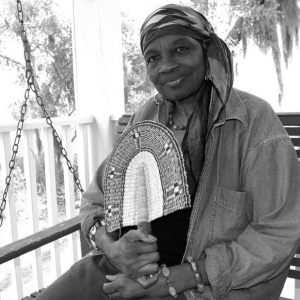Food Studies | Notes on a Culinary Luminary

By Dr. Scott Alves Barton
On the morning of June 19th, I sat at my desk writing a summary of the recent event, Culinary Luminaries: Vertamae Smart-Grosvenor, which we organized in the Food Studies Program at The New School. I immediately reflected on the changing landscape of African American foodways over the six weeks since the event in early May. I was thinking of future luminary, fourth generation Gullah-Geechee farmer Matthew Raifort who had just released his Low Country memoir and cookbook, Bress and Nyam (2021, Countrymen Press). I was thinking of our living and ancestral Culinary Luminaries including panelist, Dr. Jessica B. Harris, whose book High on the Hog: A Culinary Journey from Africa to America (2011, Bloomsbury) opened a new dialog on legacy, importance, and centrality of African American foodways to U.S. cuisines. I was thinking of red drink and red foods at the inauguration of the Juneteenth: National Independence Day Act as a federal holiday following U.S. Maj. Gen. Gordon Granger’s order, that provided the final emancipation of Galveston, Texas’ enslaved community, (two and one- half years following Abraham Lincoln’s signing of the Emancipation Proclamation in 1863). Red is symbolic for many cultures, from the semiotics of luck in China, a celebratory trope in good times, and to blood universally, as a kinship tie, or to honor loss and suffering. Within the diaspora, the red in palm oil, watermelon, bissap/sorrel drinks, or Charleston’s famed red rice is concurrently heraldic and a cypher.
These people, geographies, moments, and foodways were paramount to Vertamae Smart-Grosvenor and her life’s work. The May panel event brought Vertamae’s children, Kali Henry and Chandra Weinland Grosvenor Brown, in conversation with their mother’s first editor, Marie Dutton Brown, a publishing luminary as an early Black woman in a then-predominantly white, male field. Following the panel, I received calls from food scholars wanting to interview Marie, having only previously known of Toni Morrison as a Black female literary editor/agent. We heard from D.C. area radio journalist and editor Sue Goodwin, who worked with Vertamae when they were both working on NPR’s Hothouse Series. We were blessed by filmmaker Julie Dash’s loan of clips from her forthcoming biopic of Vertamae, “Travel Notes of a Geechee Girl: Vertamae Smart Grosvenor,” which situates her in the Black Arts Movement, as a culinary historian, and a proud Gullah-Geechee firebrand. Dr. Jessica B. Harris brought it all home by further illustrating the importance of a “change agent” and iconoclast such as Vertamae was. Harris underscored the value of Black people in the United States culinary landscape, the overriding need to eliminate discriminatory and dismissive characterizations of our contributions, and elevate our achievements in this moment of reckoning that Vertamae championed from the mid 20th century to her homegoing on September 3, 2016.
The Culinary Luminaries: Vertamae Smart-Grosvenor event drew over 100 participants from New York, across the United States and internationally, in an educational celebration of Smart-Grosvenor’s life and work. This level of interest, among those familiar with Smart-Grosvenor, and those who had not previously been, attests to the importance of expanding awareness and access to knowledge about her legacy. Now, more than ever, in as many ways as possible, acts of restorative justice and inclusion need to be mounted to correct lacuna in the historical records and archives to better include the contributions of Black and Brown scholars and practitioners.
Scott Alves Barton had a career as an executive chef, restaurant and product development consultant, and culinary educator prior to pursuing Ph.D. in Food Studies from NYU. His research and publications focus on the intersection of secular and sacred cuisine as a marker of women’s knowledge, identity politics, cultural heritage, political resistance, and self-determination in Northeastern Brazil. He is a part time faculty member in the Food Studies Program at The New School, teaching courses on food, culture, and media.
The event discussed in this essay was part of the long-running Culinary Luminaries public programming of the Food Studies Program at The New School. It was also part of the Spring 2021 Food Studies event series on “Food and Power.”
You can find information about ongoing Food Studies programs through the university’s Events Calendar; via Twitter @newschoolbpats; or by contacting foodstudies@newschool.edu.